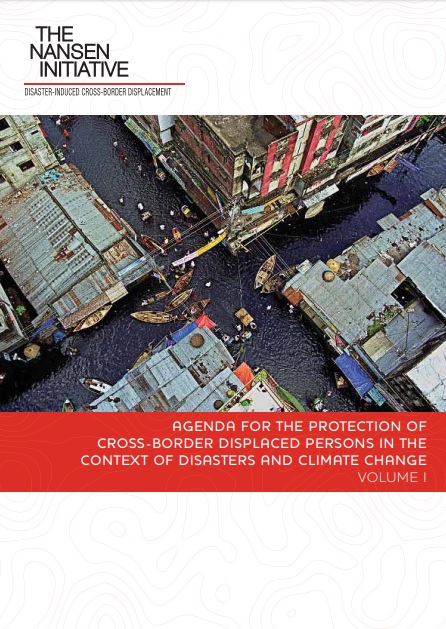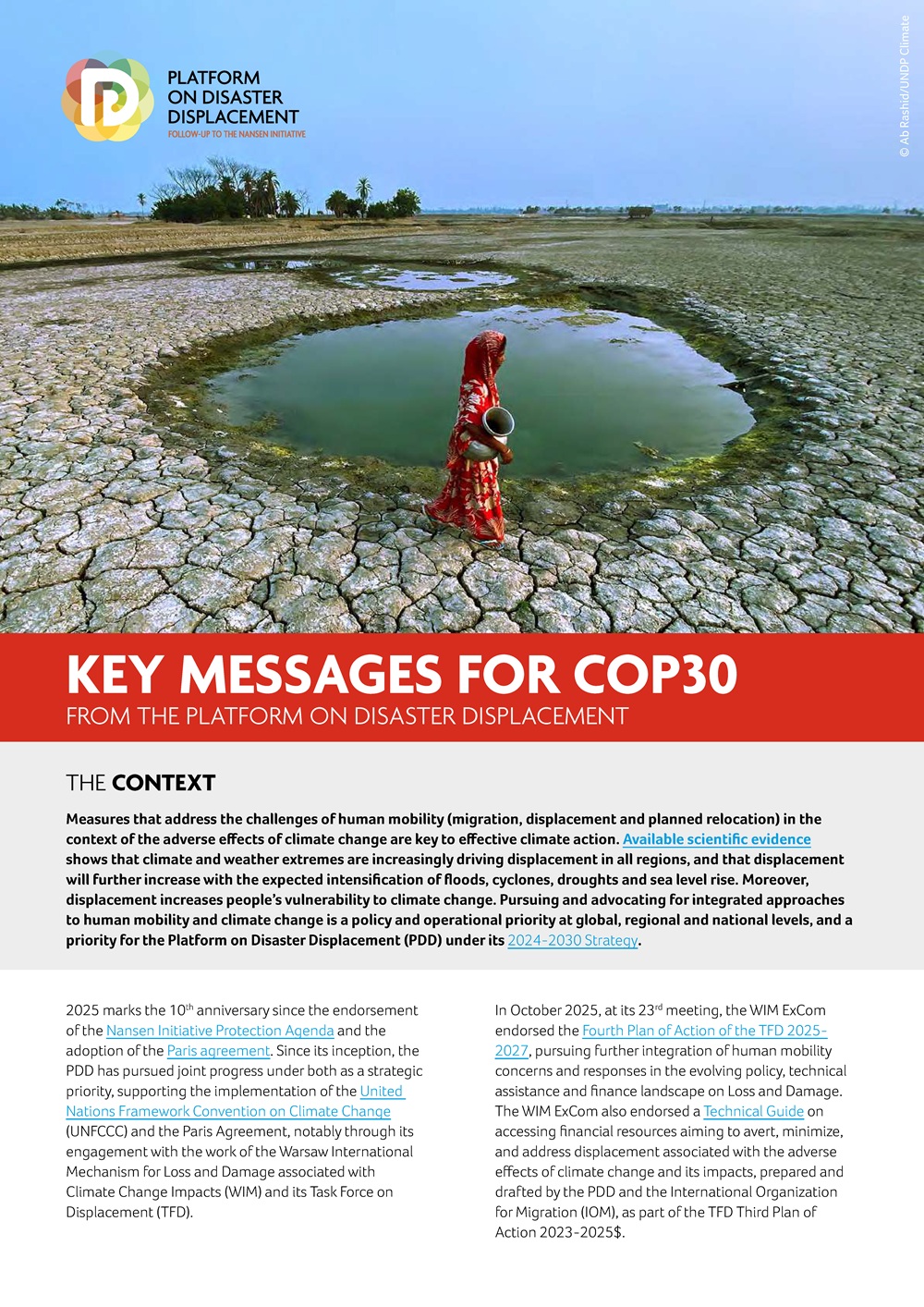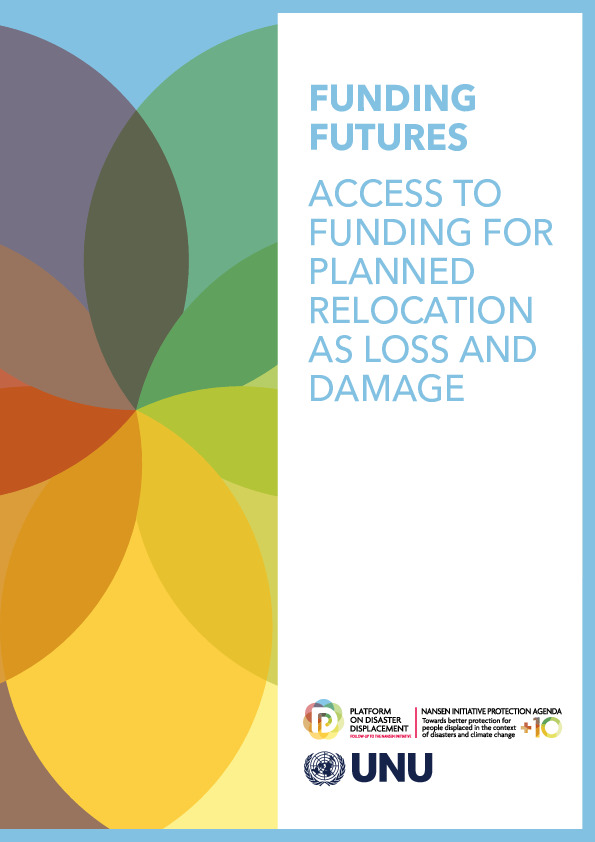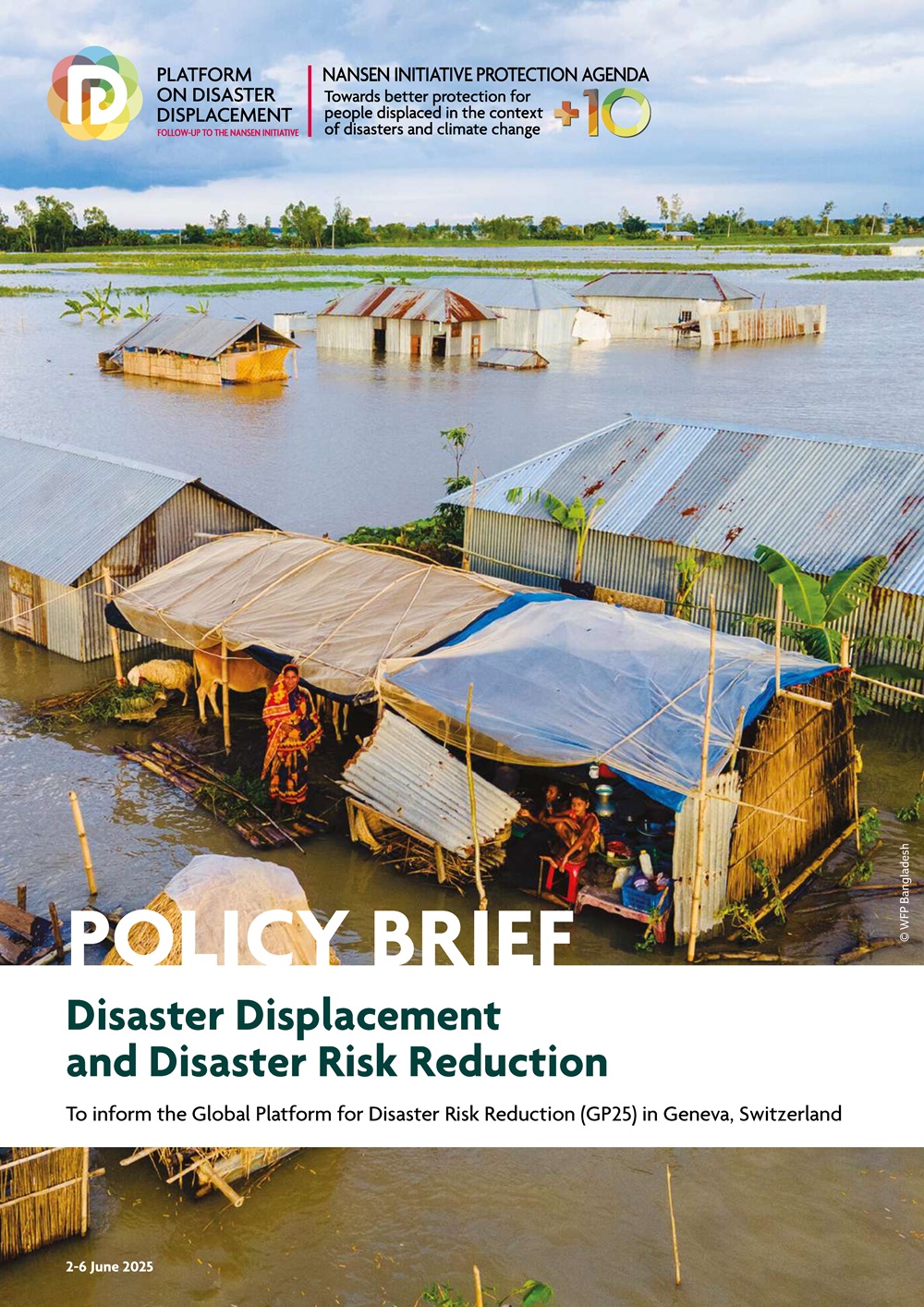Agenda for the Protection of Cross-Border Displaced Persons in the Context of Disasters and Climate Change – Volume I
Nansen Initiative
The Agenda for the Protection of Cross-Border Displaced Persons in the Context of Disasters and Climate Change (hereinafter Protection Agenda) aims to assist States and other actors as they seek to improve their preparedness and response capacity to address cross-border disaster displacement.
The Protection Agenda:
- Conceptualizes a comprehensive approach to disaster displacement that primarily focuses on protecting cross-border disaster-displaced persons. At the same time, it presents measures to manage disaster displacement risks in the country of origin;
- Compiles a broad set of effective practices that could be used by States and other actors to ensure more effective future responses to cross-border disaster-displacement;
- Highlights the need to bring together and link multiple policies and action areas to address crossborder disaster-displacement and its root causes that to date have been fragmented rather than coordinated, and calls for the increased collaboration of actors in these fields; and
- Identifies three priority areas for enhanced action by States, (sub-)regional organizations, the international community as well as civil society, local communities, and affected populations to address existing gaps:
- Collecting data and enhancing knowledge on cross-border disaster-displacement;
- Enhancing the use of humanitarian protection measures for cross-border disaster-displaced persons;
- Strengthening the management of disaster displacement risk in the country of origin.
Rather than calling for a new binding international convention on cross-border disaster-displacement, this agenda supports an approach that focuses on the integration of effective practices by States and (sub-) regional organizations into their own normative frameworks in accordance with their specific situations and challenges.
The Protection Agenda is situated in the context of increased international and regional recognition of the challenges of human mobility in the context of disasters and climate change, such as the
Conference of the Parties to the UN Framework Convention on Climate Change, the Sendai Framework for Disaster Risk Reduction 2015 – 2030, the UN’s 2030 Agenda for Sustainable Development, and the World Humanitarian Summit. The Nansen Initiative has already successfully contributed its relevant findings and conclusions to several of these processes. Thus, the Protection Agenda aims to further complement and support, rather than duplicate, these international and regional frameworks, processes and action areas by providing relevant evidence and examples of effective practices to address disaster displacement and its causes.





